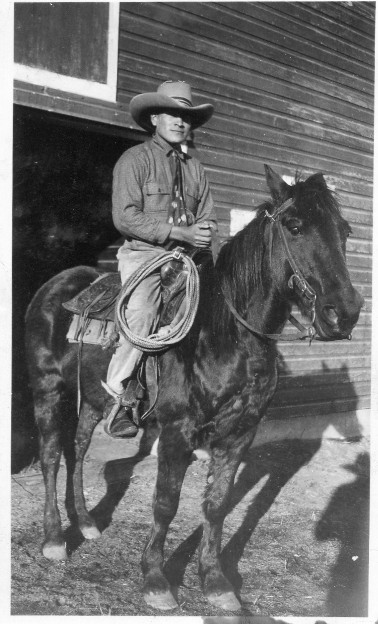
courtesy of the Cross family
Tribes of the Missouri River basin must band together in their mutual defense in order to control the whims and fancies of the starry-eyed politicians...who think they are Davy Crocketts or Indian fighters who still think the Indian's rights are an impediment to the progress of the nation and should be wiped out...the government of the United States first dealt with our tribal governments as sovereign equals. We have never asked anything except that this protection be continued and these benefits be provided as agreed, in good faith...from our point of view, if these laws [termination era laws] are passed, they will be a new monument to the white man's persistent efforts to force native people of this continent to vanish or become like himself.
Modern era chairman of the Three Affiliated Tribes
A tireless
champion of his tribes' treaty rights, for twenty years Cross
fought against the federal government's attempts to condemn the
Three Affiliated Tribes homelands. He served as tribal
chairman numerous times between 1944 and 1958, and fought to
protect his people's rights until his death in 1964.
The
one-time rodeo cowboy and rancher from Elbowoods, North Dakota,
would join Felix Cohen and Robert Yellowtail to become the most
familiar and forceful champions of native rights during the
termination and relocation eras. The battle against
Pick-Sloan would open many doors, including those to the White
House, where Cross would meet and work with five presidents:
Franklin Roosevelt, Harry Truman, Dwight Eisenhower, John Kennedy,
and the future president, Richard Nixon. Cross served
as the first vice president of the National Congress of American
Indians. For more on Martin Cross, click here
Related People
Related Events
Related Flashpoints
Related Places